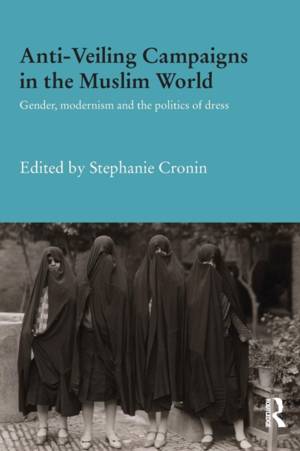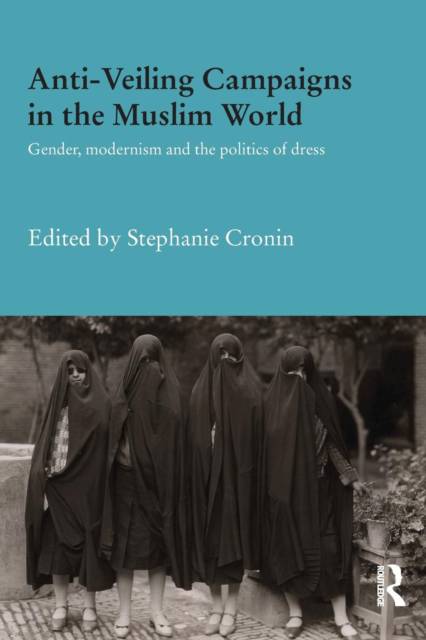
- Afhalen na 1 uur in een winkel met voorraad
- Gratis thuislevering in België vanaf € 30
- Ruim aanbod met 7 miljoen producten
- Afhalen na 1 uur in een winkel met voorraad
- Gratis thuislevering in België vanaf € 30
- Ruim aanbod met 7 miljoen producten
Anti-Veiling Campaigns in the Muslim World
Gender, Modernism and the Politics of Dress
Omschrijving
In recent years bitter controversies have erupted across Europe and the Middle East about women's veiling, and especially their wearing of the face-veil or niqab. Yet the deeper issues contained within these controversies - secularism versus religious belief, individual freedom versus social or family coercion, identity versus integration - are not new but are strikingly prefigured by earlier conflicts. This book examines the state-sponsored anti-veiling campaigns which swept across wide swathes of the Muslim world in the interwar period, especially in Turkey and the Balkans, Iran, Afghanistan and the Soviet republics of the Caucasus and Central Asia. It shows how veiling was officially discouraged and ridiculed as backward and, although it was rarely banned, veiling was politicized and turned into a rallying-point for a wider opposition. Asking a number of questions about this earlier anti-veiling discourse and the policies flowing from it, and the reactions which it provoked, the book illuminates and contextualizes contemporary debates about gender, Islam and modernism.
Specificaties
Betrokkenen
- Uitgeverij:
Inhoud
- Aantal bladzijden:
- 288
- Taal:
- Engels
- Reeks:
Eigenschappen
- Productcode (EAN):
- 9781138687202
- Verschijningsdatum:
- 24/04/2016
- Uitvoering:
- Paperback
- Formaat:
- Trade paperback (VS)
- Afmetingen:
- 156 mm x 234 mm
- Gewicht:
- 430 g

Alleen bij Standaard Boekhandel
Beoordelingen
We publiceren alleen reviews die voldoen aan de voorwaarden voor reviews. Bekijk onze voorwaarden voor reviews.










